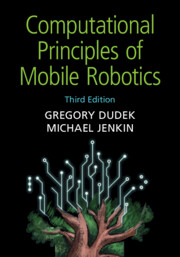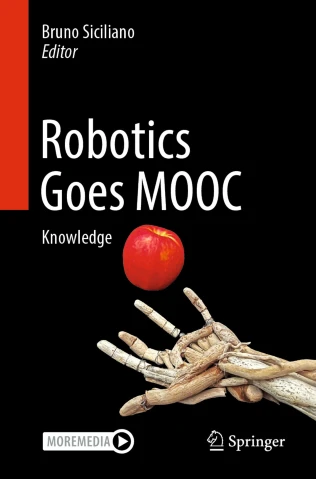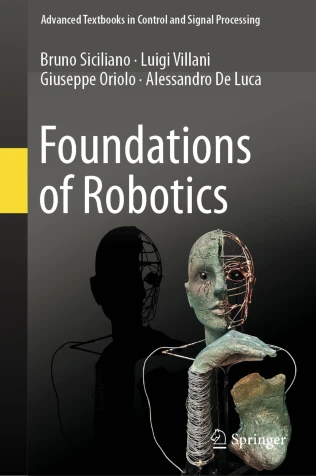Course Vision for Autonomous Robots
Master Artificial Intelligence
This is the information of Fall 2025
This year the course will be given for the second time, by Arnoud Visser and Shaodi You as lecturers, with support of Joey van der Kaaij. The course was given for the first time in Fall 2024.
Description
The description is available in the course catalogue with code VFAR6Y. The course is a free choice in the Master Artificial Intelligence Curriculum. It assumes that you have finished Computer Vision 1 prior to this course.
Contents
This course gives an introduction in the fundamentals of perception algorithms for autonomous robots. The focus will be on the mechanisms that allow a mobile robot to move through a real world environment to perform its tasks. It synthesizes material from the fields of spatial transformations, computer vision, artificial intelligence and probability theory.This course is based on the book Robotics, Vision and Control, supported by Computational Principles of Mobile Robotics.
The assignments are all Python and ROS based.
Schedule
The official schedule should be found at mytimetable or datanose.
For the assignments not only a solution is expected, but also a rational. The experiments performed to solve the given problem should be described in a lab report, which will be graded based on the following criteria.
Week 44: Lecture - 1st hour - Introduction
Week 44: Lecture and Lab - 2nd hour - Crash course ROS2
Week 45: Lecture - 1st hour - Position and orientation
Week 45: Lecture and Lab - 2nd hour - Line following with Bird-Eye view and Hough Transform
Week 46: Lecture - 1st hour - Time and Motion
Week 46: Lecture and Lab -
Week 47: Lecture - 1st hour - Stereo Vision and Visual Odometry
Week 47: Lecture and Lab -
Week 48: Lecture - 1st hour - Visual Localization and Mapping
Week 48: Lecture and Lab -
Week 49: Lecture - 1st hour - Planning and Navigation
Week 49: Lecture and Lab -
Week 50: Lecture - Latest research Week 50: Lecture - Finalize final project
Week 51: Final exam
Literature

Peter Corke, Robotics, Vision and Control - Fundamental Algorithms in Python, Springer Tracts in Advanced Robotics 146, 3rd edition, May 2023

Gregory Dudek and Michael Jenkin, Computational Principles of Mobile Robotics, Cambridge University Press, 3rd edition, February 2024.

Francisco Martín Rico, A Concise Introduction to Robot Programming with ROS2, Chapman & Hall, 2nd edition, June 2025.

Luca Carlone et al, SLAM Handbook - From Localization and Mapping to Spatial Intelligence, Cambridge University Press, 2025/2026.
Embedding in AI curriculum
This course is supported by the following chapters of 'Artificial Intelligence - A Modern Approach' 4th edition, by Stuart Russell and Peter Norvig:- Chapter 12: Quantifying Uncertainty
- Chapter 13: Probabilistic Reasoning
- Chapter 14: Probabilistic Reasoning over Time
- Chapter 25: Computer Vision
- Chapter 26: Robotics
Evaluation
The course is 2025 evaluated by the participants with a 3.3.
Links
- Queensland University of Technology's Robot Academy.
- Eldgenössische Technische Hochschule Zürich: Vision Algorithms for Mobile Robotics (2025) by Ismail Geles, Roberto Pellerito and Davide Scaramuzza.
- Eldgenössische Technische Hochschule Zürich: Vision Algorithms for Mobile Robotics (2024) by Noam Szyfer, Serafin Schoch and Davide Scaramuzza.
- Princeton University: Autonomous Robot Navigation (2015) by Dr. Christopher Clark.
- Università di Roma La Sapienza: Autonomous and Mobile Robotics (2023) by Prof. Giuseppe Oriolo.
- University of North Carolina: Computer Vision in 3D World (2025) by Roni Sengupta.
- Cornell University: Introduction to Computer Vision (2025) by Andrew Owens.
- Brown University: Computer Vision (2025) by James Tompkin.
- University of Illinois: Computer Vision (2024) by Dr. Saurabh Gupta.
- Berkeley: Learning for 3D Vision (2023) by Angjoo Kanazawa.
- Carnegie Mellon University: Computer Vision (2017) by Deva Ramanan.
Software toolkits
- the Robot Operating System (ROS)
- code that accompanies Peter Corke's textbook
- code that accompanies Micheal Jenkin's textbook
- code that accompanies Francisco Martín Rico's textbook
Last updated October 2025


 This web-page and the list of participants to this course is maintained by
This web-page and the list of participants to this course is maintained by